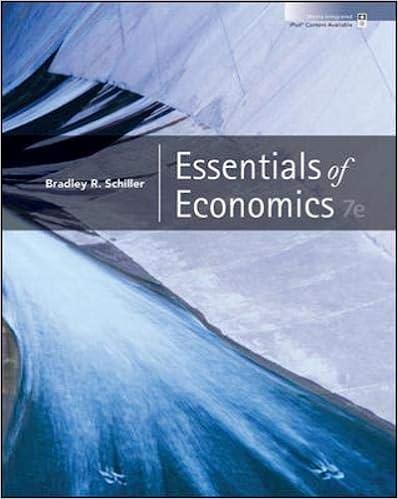A few questions regarding the irrational behaviour and economic theory model (1962) by Gary Becker. Please explain in full detail. Thanks
Q1) What is the main behaviour of the model
Q2) How does the model work of utility optimisation
Q3) What are the costs and benefits of that behaviour to households and firms
Q4) What is the conclusion of the model?
Thank you
Link to model: http://mcadams.posc.mu.edu/econ/Becker,%2520Irrational%2520Behavior.pdf
THE JOURNAL OF POLITICAL ECONOMY Volume LXX FEBRUARY 1962 Number I IRRATIONAL BEHAVIOR AND ECONOMIC THEORY GARY S. BECKER Columbia University I. INTRODUCTION of a well-ordered function, such as a A LTHOUGH it has long been agreed utility or profit function that traditional economic theory Strong and even violent differences "assumes" rational behavior, at developed, however, at a different level. one time there was considerable disagree- Critics claim that households and firms ment over the meaning of the word "ra- do not maximize, at least not consistent tional." To many, the word suggested ly, that preferences are not well ordered, an outdated psychology, lightning-fast and that the theory is not useful in calculation, hedonistic motivation, and explaining behavior. Some theorists have other presumably unrealistic behavior, replied that economic theory is valid As economic theory became more clear- only as a broad tendency, not in each ly and precisely formulated, controversy specific instance; some noted that the over the meaning of the assumptions "proof of the pudding is in the eating," diminished greatly, and now everyone and argued that this theory gives use- more or less agrees that rational behavior ful predictions even though decisions do simply implies consistent maximization not "seem" to be rational; still others claimed that only rational behavior has 1 My greatest debt is to A. A. Alchian for the stimulation provided by his article of more than much chance of surviving a very harsh a decade ago ("Uncertainty, Evolution and Eco- competitive world. nomic Theory," Journal of Political Economy, LVIII The purpose of this paper is not to (June 1950]), and for comments on various drafts, beginning in the summer of 1957. I am also indebted contribute still another defense of eco- to M. Friedman for insightful oral and written nomic rationality. Rather it is to show statements (see "The Methodology of Positive Eco- how the important theorems of modern nomics," in Essays in Positive Economics (Chicago: University of Chicago Press, 1931]) on economic economics result from a general principle rationality, to seminar groups at Columbia, the which not only includes rational behavior National Bureau of Economic Research, North Car- olina State College, UCLA, and Stanford, and to and survivor arguments as special cases, Z. Griliches, H. G. Johnson, H. G. Lewis, J. Mincer, but also much irrational behavior. No P. J. Nelson, and G. J. Stigler. I alone am responsi- matter what the intent, some readers ble, however, for any remaining errors. might believe that the effect of this dem- This content downloaded from 125.253.35.209 on Fri, 28 Dec 2018 07:08:12 UTC All use subject to https://about.jstor.org/terms







